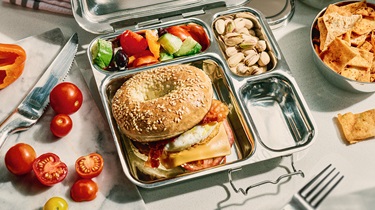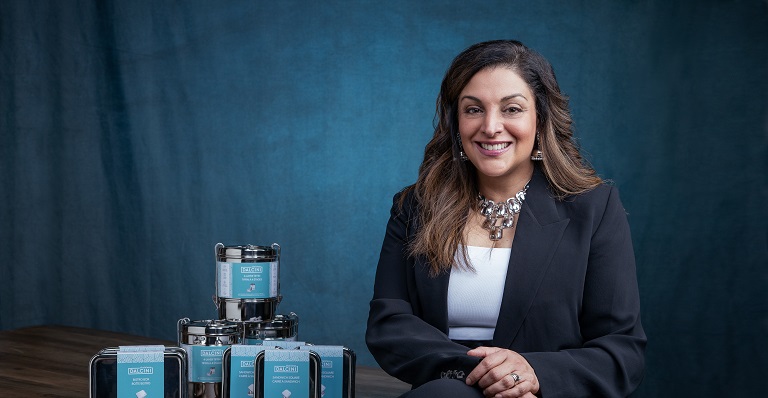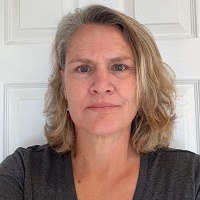
Steely determination: Dalcini is making the world healthier—one lunchbox at a time
Author details
Karen Turner
Senior international trade editor
Nita Tandon never envisioned she’d someday run a multimillion-dollar housewares company. Truth is she only became an entrepreneur out of necessity.
It all started in 2009 when Tandon left her 20-year career in pharmaceuticals to become a mom. That same year, Health Canada banned bisphenol A (BPA) in plastic baby bottles and sippy cups, declaring it toxic to “human health and the environment.”

Despite the ban that spanned the globe, the chemical was still being used in other products, like food storage containers and water bottles, and manufacturers were making BPA-free products by substituting BPA with other chemicals.
“I knew I had two choices: Settle for what existed, or create my own. I chose to create my own. This was my leap into becoming an entrepreneur,” says Tandon, who was a guest speaker in February at the digital conference, StrikeUP 2024: Driving change for women entrepreneurs. Co-sponsored by Export Development Canada (EDC), the one-day event focused on everything from how to build a values-based company to finding global partners to champion your business.
In 2015, Tandon launched Dalcini Stainless, an e-commerce company specializing in reusable, chemical-free food containers and tableware made from recyclable stainless steel.
“I knew I didn’t want those chemicals around my daughter. It really became a necessity. I just thought if I know better, then I need to do better,” says the award-winning mompreneur, who lives in Ottawa. “How can we say that we really want to protect our kids, but we’re putting dyes, BPA, lead in kids’ toys, in paints. That was really my start.”
You should also check out
EDC Women in Trade guide offers insights to help Canadian women-owned businesses succeed internationally
Born in India, Tandon combined her culture, health science background and practicality as a mother to design stainless lunchboxes, divided food trays and compact snack containers that are not only sustainable, but easy to clean.
“India has used stainless steel for years. It’s eco-friendly and chemical-free. It’s also durable,” says the environmental activist, whose products are manufactured in India and sold in Canada, the United States and New Zealand. Her major retail partners include Indigo, Simons and Lowe’s in the U.S.
“Most people are shocked because stainless steel is a metal. But generally, what are you eating with every night? A stainless-steel fork and cutlery. When we look at surgical tools, it’s always stainless steel. It’s the product that people use when you go to your dentist to get your teeth cleaned. The reason is because it’s naturally antibacterial,” she says.
Though determined to reduce the plastic waste overloading landfills with her reusable containers, Tandon was adamant that no child labour be involved in making them. Constructed from quality, food-grade stainless steel with no paint, resin or adhesive material on them, Dalcini products come with a lifetime warranty and when they reach end of life, they can be melted down to make new goods.
You should also check out
Rapidly growing sector remains resilient despite turbulent headwinds
Sustainability 101
In 2015, sustainability wasn’t the buzzword in Canada that it is today.
“People didn’t really understand the word sustainability. No one was talking about it,” recalls Tandon. “I had to spend a lot of time on social media educating.”
From Day 1, she planned to export her brand, and the U.S. was her first international market.
“Some U.S. states such as California are ahead of the curve when it comes to sustainability and toxic chemicals in products. They already have legislation in place, so I didn’t have to educate my customer on BPA,” she says.
Driving change
In an interview in March 2020, Tandon was asked for her definition of entrepreneurship.
“Being an entrepreneur means creating innovative solutions to existing problems and having the drive to see them through to implementation.”
As a woman of colour in trade, she’s also focused on breaking down barriers and eliminating the “unconscious bias” surrounding women in business.
“We need to change the definition of business and the view of what business looks like. If you still Google it today, the images that come up are very much males in a blue business suit and white shirt. That’s not who I am. (But) it doesn’t mean that I’m not a business. It means we need to change the definition.”
Support for growth
As a small, woman-owned business, Dalcini needed more working capital to expand into new markets and meet increasing demand from larger vendors.
“I never would have been able to do this with the small line of credit that I previously had in place,” recalls Tandon, who was able to secure a 0% interest loan with Coralus (formerly SheEO) to help grow her business.
A few years later, she leveraged EDC’s Export Guarantee Program (EGP) to increase her business line of credit with her bank, which enabled her to meet global demand for her products.
“I have sales outside of Canada, TD worked with EDC to find a solution for my financing needs. The larger line of credit will enable me to work with larger vendors and supply me with the working capital, so that I can order larger inventory quantities to meet their purchase orders,” says Tandon, who also completed the Trade Accelerator Program (TAP), designed to help small- and medium-sized enterprises develop their international business strategy and make connections.
EDC solutions can help you find market intelligence, get advice, connect to opportunities abroad, manage risk and much more. To contact an export advisor at EDC, visit our Export Help Hub.
Nita Tandon’s tips for other women entrepreneurs
- Make sure you have good credit: “It’s sort of the foundation to starting a business. People want to be able to trust you before they trust your business.”
- Network: Tandon admits most entrepreneurs don’t feel comfortable talking about their business challenges. But when you find the right network, she says, it can be life-changing. Suddenly, you’re surrounded by “the resources and support that you need.”
- Stick to your guns. “You’re probably going to get a lot of people who say business isn’t done that way, or you should do it this way. But if you really feel strongly about something, go with it.”
Tune into the EDC’s Export Impact Podcast for Shattered ceilings: Nita Tandon turns challenges into triumphs on March 6.


















